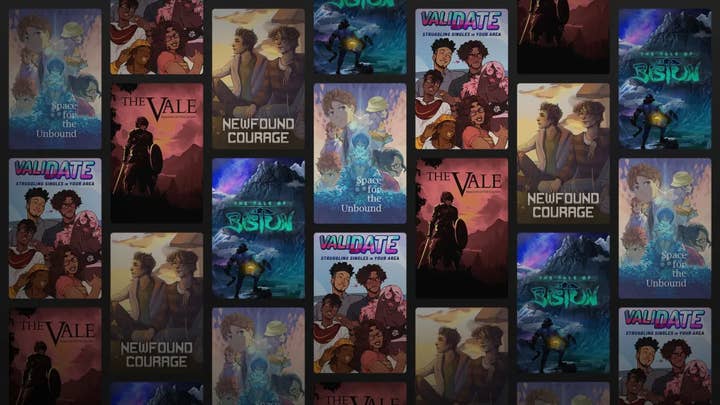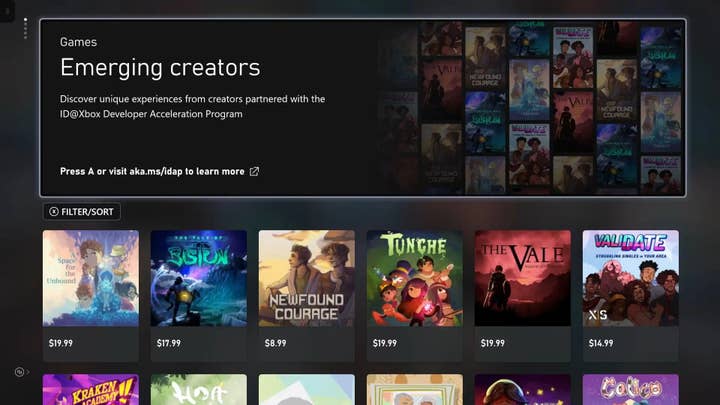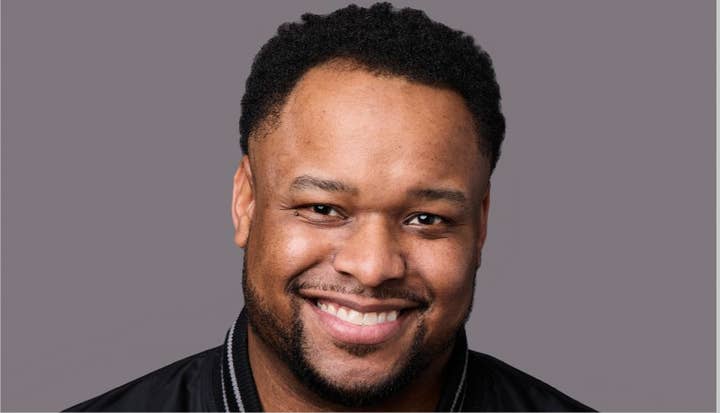Xbox: We can't reach the billions of gamers without underrepresented creators
Microsoft on its program to bring different developers from different walks of life to Xbox
Xbox talks frequently about its goal of reaching three billion gamers.
It’s why the company is spending so much energy and money on streaming and subscriptions. It’s why it has two different Xbox Series consoles. It’s why it’s releasing all its games on PC. It’s why it wants to launch a mobile app store. It knows it can’t reach three billion gamers with a high-powered games console alone.
Yet all these platforms, business models and distribution channels are irrelevant if Xbox doesn’t have the right games. And we’re not just talking the big blockbusters like Call of Duty. For that three billion dream to be a reality, Microsoft is going to need games that can appeal to different nationalities, genders, ages, sexualities, ethnicities, people with disabilities, social-economic backgrounds and more.
“I firmly believe that we can't reach the billions of gamers that we hope to reach, without empowering more developers who have access to other communities,” explains James Lewis, senior creative partner programs lead at Xbox.
“There are people who don't think of themselves as gamers because they haven't seen some of the games that are coming from these communities. It is better for our industry when we can grow and welcome in new voices who can reach more audiences.”
Lewis is talking to GamesIndustry.biz about the ID@Xbox Developer Acceleration Program. It’s a program that started back in 2019. It didn't have that name, but it had the same mission: help underrepresented creators find success on Xbox.
The program was initially set up to help developers from underrepresented backgrounds port their games to Xbox. Microsoft would supply funding so that they could get their games on the Xbox store without having to sacrifice time and money, which may have been better spent elsewhere. Microsoft isn’t looking to recoup the funding, nor will it lock developers into an exclusivity arrangement.
However, the funding does vary depending on the game.
"We recognise that a lot of the teams we're seeking to support haven't had the resources to get their ideas off the ground"
“Each opportunity is different,” Lewis explains. “We connect with developers and try to understand their needs... what is the scope of the game that they're porting? What is the complexity? What engine are they using? Is it something bespoke, or is it something a bit more common? Once we understand those, we craft deals that are specific to those teams.”
He continues: “Some teams are going to go: 'Hey, I can probably do this work myself and do it even cheaper, and we can use that money towards the quality of the game'. Whereas other teams may be like: 'I found this amazing porting partner, and they may be a bit more money than I was planning, but we're willing to spend that'. We're not directly owning that piece of the process for them.”
The second part of the program is around information. Developers are invited to join Xbox’s Green Room webinars, which offer best practice advice on launching a game, game lifecycles, marketing, setting up a store page and so on.
Finally, there’s a pilot program where Microsoft is offering some developers funding to help them produce a game prototype.
“We recognise that historically a lot of the teams that we're seeking to support haven't had access to the resources to get their ideas off the ground,” Lewis observes. “We're being intentional in providing access to, again, non-recoupable amounts of funding for them to build a prototype. They can then clearly and accurately articulate the vision that they have for their game. So when it comes to conversations with potential partners, they have something to show and they will hopefully not be hit with those questions around 'can you actually pull this off?' Because hey, they've done the work already.”
This part of the program is in the pilot stage, and although Lewis says there are some slots left, there is a limit on the number of developers they’re working with. However, there is no such limit for the porting and educational components of the program.

So who exactly is this program for? In the press release Microsoft states that the developers it’s looking to support “includes, but is not limited to, developers who are led by those from Black, Indigenous, Latino or LGBTQIA+ communities, women, developers with disabilities, developers from emerging markets or teams with unique perspectives. This also includes independent developers working on a game that responsibly centres the experience around diverse characters or that prioritizes accessibility.”
‘Teams with unique perspectives’ is quite broad and open to interpretation, and deliberately so, explains Lewis.
“One of the things that weighed on me was... I'd hate for someone to read this, not see themselves listed, and think this is not for them. I'd rather them err on the side of 'this is for me'. So we try to be as inclusive as possible.
“Underrepresented perspectives... maybe your social-economic background hasn't been conducive to game development. Or maybe you're a member of an aboriginal community. We are trying to make sure we're covering for things that we're not so aware of, or for communities we don't yet know about. We're making sure we're creating a space for them to reach out and ask questions.”
One group the program is primarily looking for, however, are new developers. This isn’t designed for those teams that have been around a while and have already seen success.
“We index more towards newer teams that may have not had the opportunity or exposure to bring their games to Xbox,” Lewis explains. “Given the opportunity to partner with a studio that has shipped 30 and had some level of success, or a brand-new team... our instinct is to make sure we are helping those new teams.
“If there is a development team that comes to us that has had some success, and they may not be a great fit for our program, we know some awesome people they should be speaking with – our friends at ID@Xbox, or within the publishing team, or maybe it's another initiative in general. We are all so close, we can easily make those connections.”
"The issue is often that these developers don't know how to reach out to us. They don't know we exist”
Of course, the games that the program signs must be of a certain standard. Xbox won’t support games that it deems harmful, or if the quality level is too low.
“But quality and things like that are not often the issue,” he says. “It's often just that these developers don't know how to reach out to us. They don't know we exist. We are trying to solve that problem.”
Indeed, that’s why, four years after starting the program, Xbox is speaking so openly about it at GDC this week.
Asks Lewis: “How do we know we are reaching the developers who most need our help? And I've not had a great answer to that question. So now that we're talking about this publicly, we have confidence there is a better opportunity for the people who most need us to reach out and get involved.”
Putting out a press release, going to GDC and speaking to GamesIndustry.biz are all great ways of getting the message out there, but a lot of these studios aren’t checking the Xbox website, they can’t afford a week In San Francisco, and – as hard as it is to believe – some might not even read GamesIndustry.biz. So what more is the team doing?
“A lot of what we've been doing since 2019 has been through network, which has been pretty effective,” Lewis says. “We are looking to reach people in regions of the world that are underrepresented from a game development standpoint, so when we think about teams in South East Asia, or India, or parts of Africa... how can we reach these teams? And thankfully we've had networks that have enabled us to make wonderful partnerships. But we know that there are more people that we can reach. So in part wire posts, GDC talks... but also going and visiting different shows. We had members of our team attend the BIG event in Brazil. We built a lot of connections there. Those are the types of events where we want to be.”
Because these developers are often novices when it comes to working with Xbox, the program is also designed to make the application process as easy as possible.
“We ask developers to reach out to us directly at IDAP@Microsoft.com,” Lewis tells us. “That puts them in our process and creates a relationship with our team. We get them signed up to ID@Xbox so we can trigger an NDA, and then we continue our process of evaluating the project from there. So the teams coming to us don't need to go through the whole ID@Xbox process... applying for the company, submitting the game... things like that. We intercept those relationships and give them feedback on whether the opportunity is something we want to move forward with. We want to make it super easy.”
The ID@Xbox Developer Acceleration Program isn’t disconnected from the wider Xbox teams, either. We asked Lewis whether the program could do more to help these developers get visibility, and he immediately pointed to things that the firm has been doing during GDC.
“We do provide information and give tips on how to market and promote games. But then we also find opportunities to help promote them. We had an event at GDC where we are showing off three of the titles that are coming to the program. And then we have a store collection that went live. To date, we have shipped 28 titles through the program and we have a store collection that celebrates those titles and developers. At the same time, this is a work-in-progress, and we are going to have to continue to evolve our approach.”

And the program will also connect relevant developers with the Xbox publishing and Game Pass teams, too.
“Part of creating success for these developers from these communities is finding other opportunities for them on the platform,” Lewis continues. “So whether that's Game Pass or a publishing relationship... all of those are meaningful things that help those teams have success. That is absolutely part of what we're doing. If we notice that our store team is doing an awesome cultural moment that involves a certain community... maybe we can give some shine to games from developers that are relevant to it. Or... if we're talking to Game Pass, we might suggest a cool title for them to consider. We are always looking for ways we can deepen those relationships between developers in our program and other parts of Xbox.”
The Developer Acceleration Program may not be anywhere near the scale of an Activision Blizzard acquisition, or the launch of a new streaming service. But it could prove to be just as important in Xbox achieving its three billion gamer goal.
“I feel confident in this, because the team that we have is really seeking to empower underrepresented creators with the resources and information needed to bring their innovation, creativity and originality to Xbox,” Lewis concludes. “We already have 100 titles and I am looking forward to those next 100.”
Sign up for the GI Daily here to get the biggest news straight to your inbox

